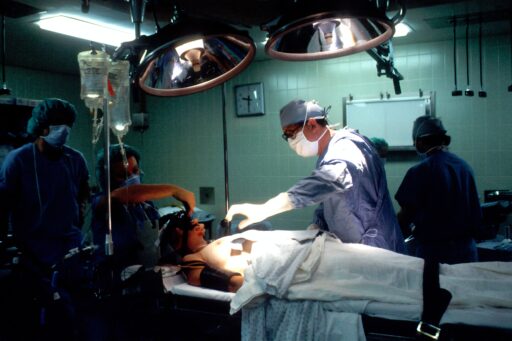Our food choices are determined by many factors, such as taste, our understanding of nutrition, and cost. In comparing the cost of fruits, vegetables and animal products, you might wonder: why is meat so cheap? The answer is that meat and other animal products are only cheap for the consumer at checkout. Its true societal cost is hidden. Government programs use taxpayer dollars to subsidize and buy-back animal products and to treat the chronic diseases they create. The only reason animal products seem cheaper at the store is because our tax dollars have already funded them through government subsidies. As such, their sticker price doesn’t reflect the real cost of production.
1. We pay for meat before checkout through tax-funded subsidies.

Most governments provide more subsidies to the meat industry than to growing fruits and vegetables, even though these same governments recommend people eat more produce. In the U.S., the government spends about $38 billion annually to subsidize meat, dairy, fish and eggs. Agricultural subsidies are also given to producing major crops like corn, soybeans, wheat and rice because many of these are used as animal feed. Yet it spends only 0.04 percent of that ($17 million) to subsidize produce.
Author and attorney David Simon describes in his book Meatonomics describes how society pays $2 extra dollar for every $1 of animal product sold. He writes, “If these external numbers were added to the grocery-store prices of animal foods, they would nearly triple the cost of these items…A gallon of milk would jump from $3.50 to $9, and a store-bought, two-pound package of pork ribs would run $32 instead of $12.” A $4 Big Mac would cost about $11.
The devastating impact of subsidies impacts not only our land, but our oceans as well. Research published in the journal Science predicts that we will wipe out all fish species we eat by 2048 if we continue current trends.
2. We pay for cheap meat long after checkout through resulting chronic diseases and buybacks.
Cheap meat and other animal products fuel chronic diseases and contribute to health injustice

When we factor in the amount that society pays to treat the chronic diseases that these products cause, taxpayer expense related to animal agriculture industries totals to about $414 billion a year. Three quarters of that expenditure is on the healthcare required to treat the obesity, diabetes and heart disease fueled by overconsumption of meat and dairy. The remainder includes subsidies, government buybacks, checkoff programs to support meat and other related costs.
Buybacks of excess animal products are sent to “nutrition assistance programs” and contribute to health injustice

In addition to the cost of subsidies, the government buys back excess animal products to keep these industries profitable. U.S. Department of Agriculture (USDA) buyback programs redirect oversupply of beef, chicken and fluid milk to “nutrition assistance” programs, including school lunch programs despite their detrimental health impacts.
The fact that animal products are cheaper than fresh fruits and vegetables and given to people through nutrition assistance and school lunch programs contributes to the lack of health justice in the U.S. For example, in 2018, the US government bailed out the dairy industry with $1 billion dollars of taxpayer money simply because the industry made less money than in 2017. This has happened often with the dairy industry, as production continues to increase despite decreasing demand.
How do we change the system that produces meat so cheaply?
Plant-based alternatives must cost the same

Factory farming and years of selective breeding of animals has resulted in a ruthlessly efficient system. In order for plant-based alternatives to compete with them, they must become as cheap or cheaper than them.
Tightly regulate the meat industry

The government must require factory farms to treat their waste, just as municipalities have to. Doing so would cost the industry $80-200 billion annually, which is not far off from their total annual sales. While many options exist for plant-based alternatives to beef, government globally must also support research into developing cheap plant-based alternatives to chicken, eggs and fish.
Remove subsidies and tax animal products

The government must also remove the billions of dollars in subsidies given to animal agriculture industries each year. Just as cigarettes were taxed in the 80s, meat and dairy must be taxed heavily to wean Americans from overconsumption. Simon even offers a blueprint for imposing this tax in his book.
Meat only seems cheap

The question may be, “Why is meat so cheap?” but the answer is that meat only seems cheap. Its true societal cost is hidden. Government programs use taxpayer dollars to subsidize and buy-back animal products and to treat the chronic diseases they create. These programs further health injustice in our society by making disease-promoting animal products more affordable than plant foods and by distributing excess animal products to lower income groups through nutrition assistance programs.
That is the true cost of cheap meat.


